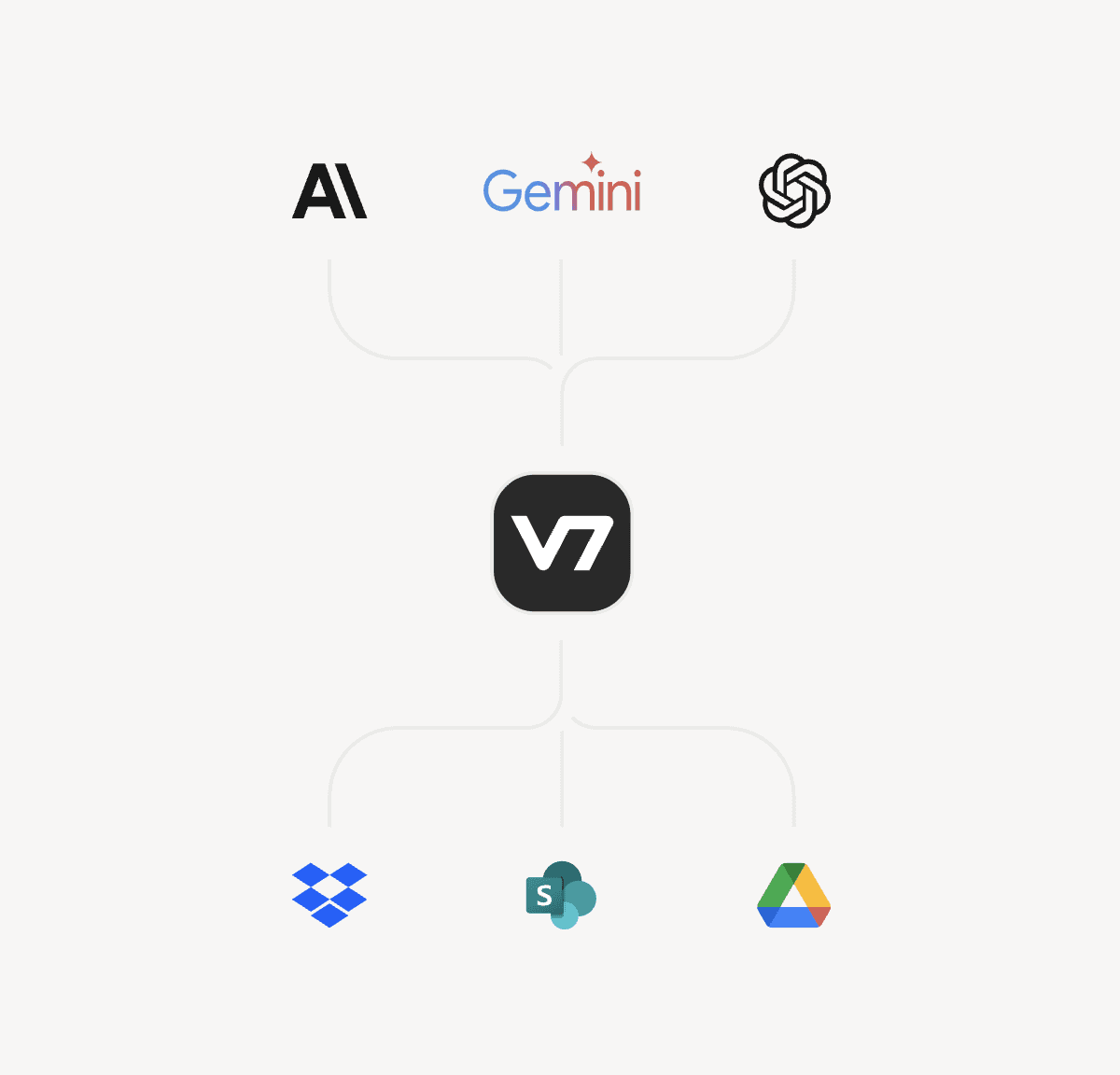Inside V7
8 min read
—
Jan 5, 2026
From coding custom AI agents to helping customers rethink how they work, Sara shares what life looks like for a Solutions Engineer at a leading agentic AI company.

V7 Team
At V7, we're building the infrastructure that powers the next generation of AI agents. But what does it actually look like to work here day-to-day? We sat down with Sara, our founding Solutions Engineer (or Forward Deployed Engineer, depending on who you ask), to get the inside scoop on what makes this role tick.
So Sara, can you walk us through what a typical day looks like for you?
It's a mix between customer calls, developing the things that customers need, and some internal meetings (though those typically fall to my lower priority). I'm always jumping between writing code, solving problems and generally taking customer’s ideas or pain points and building out ways to deliver value to them, freeing them up to work on bigger and better things.
What's the most interesting technical challenge you've tackled recently for a customer?
I recently created an agent for a potential client in the private equity space. They wanted to automate an LBO calculation, which basically gives you a pulse on how well a company might fit within their portfolio. They wanted to do this from a high-level document called a CIM, which is essentially what a company sends to a fund when they need investment.
I created an agent that processed CIMs coming in directly from the PE firm's centralized inbox. We extracted as many variables and metrics as we could find using a mix of different LLM models and Python.
The tricky part? CIMs are arbitrary. One company might include tons of information, another might be missing critical data. So I had the agent understand which variables were missing, then make assumptions or calculations, search the web for missing variables, and if all else failed, make assumptions based on the PE fund's industry or ICP.
No matter what the CIM had in it, even if we had to assume 95% of the variables, the calculation was always going to be done. The final calculation was formatted in exactly their internal template and output as a docx directly from the agent. This leveraged pretty much every V7 feature we have on offer.
That must save analysts at private equity firms tens of hours every week.
100%. You'd be able to speed up the processing at the top of their deal sourcing funnel by 95%. You can cut the time to value dramatically.

As the founding Solutions Engineer, you've built this function from scratch. What's evolved the most about the role since you started?
Well, first of all, we have a product that didn't exist when I first started. When I joined, this was purely a computer vision company. I was the only solutions engineer, and I had to figure out what to do with clients.
The role hasn't changed that much. It's still a blend of pre-sales, implementations, and post-sales. We've just grown the team to six people as of about six weeks ago. I think the beauty of being a good solutions engineer is being nimble enough to cover all points in the lifecycle of a customer; from prospect to implementation to full-on client to expanding current business.
In the AI game right now, expanding the business you've already closed is probably the best strategy. I keep hearing the words "AI fatigue," and I completely understand it. Closing new deals is cool, but expanding with people you've already closed is probably the money maker, because that's the proof that your product actually works and they want more of it.
How much of your time is spent with customers versus working internally with product and engineering teams?
At V7, we're very good at keeping all the teams talking with each other. The product and engineering teams love to have the solutions team's insight on developments, roadmap, what customers are thinking and saying. The channels are absolutely there; we have meetings on a regular cadence, everyone's in Slack making looms, showing new features.
I personally think this is something I could do a little better at just because I'm so busy with other stuff. But there's more opportunity here to influence roadmap and work with product and engineering than any other solutions team I've worked in. And I've been a solutions engineer for a long time.
What's a recent win that made you think "this is why I love this job"?
Document generation. This year and last year, I would do document generation for a very select few customers, where I had a close enough relationship that I could confidently maintain the solution. It took a long time, I built everything on AWS Lambdas, and it was labor intensive. Now we've ingested all this functionality into the platform. Within the last two weeks, I've been able to do document generation for every single prospect—people who are at earlier stages of qualification. This is such a massive feature that provides so much value.
Yesterday I made an Excel output for some people and it took me 30 minutes. The last time I made an Excel for a customer, it took me two weeks. That's so satisfying.
The "Forward Deployed" part of your title suggests you're pretty embedded with customers. What does that actually look like in practice?
We travel a lot. If we close a customer we consider to be enterprise or who has an interesting use case, we're not shy and we'll always go visit them in their office, on their home turf.
I get very close to the team that's in charge of implementing or using the agent, or the team whose work the agent is replacing. They're the experts, I'm really not. You have to understand them and their job very well if you want to translate it to an AI agent.
In terms of dealing with their tooling or infrastructure… I will never touch any infrastructure from a client. If I need to code for them, I'll code it on our infrastructure, then download the code and give it to them to deploy on their own. We're not consultants. This doesn't scale. You want to enable customers to do it themselves. At most, I'll code it in our platform, download it, send it to them, and give them a guide on how to deploy it within their infrastructure.
What skills or mindset do you think someone needs to thrive in this kind of role?
You need to be able to make something complicated seem simple. And not stop when barriers come up.
Clients will come to you with an idea of what they want. You need to distill that into an actual actionable agent, quickly upskill and learn their industry and their job to such a minute level that you can literally transcribe it to AI usually after one hour of discovery. Really, within 20 minutes you need a good enough understanding of what they do that you could replicate it yourself.
It's all very new, cutting edge stuff. There's no best practice. You need to be able to solution these things by yourself. If there are problems (which there always are) if there are platform limitations, technical limitations, feature limitations, you can't just stop there. Your job is to find a workaround.
I'm not the best coder, and I think that's actually helped me. Rather than knowing what best practice is, I have no idea what the best practices are, but I'm more than capable of just going in there and trying everything that springs to mind. That's how I end up creating really strange, niche solutions that actually solve the problem.
I don't know how you encapsulate that into a person. You're just a bit of a cowboy. You’re a bit of a cowboy. You need to be able to get things done and do them yourself. It doesn't matter if it's hard, if you spend all night copying and pasting things and that's the way you're going to get it done.
High agency, problem-solving, adaptable.
Yeah, with no need for best practice because it doesn't exist. You create the best practice.
If someone's considering a Solutions Engineering role, what's one thing about working at V7 specifically that they might not expect?
The way V7 is positioned is more like an infrastructure company. We don't do a final product, we have the infrastructure that you can use to make the final product. As a solutions engineer here, you're typically making that final product for the customer using our platform and deploying it to them. That means you can work in any industry and do anything for anyone.
But that's not the extremely unique thing about V7. The unique thing is the people and the structure of the company. I've always worked in startups. This is literally the most startup-y startup I've ever worked in. Everyone is so good at their job, everyone is cool and chilled, everyone's got such different personalities and all the personalities are on show all day long.
It is a pleasure to work here. Once you end up working here, you're not drinking the Kool-Aid, it's actually quite fun. That's the USP. Everything else you can probably find somewhere else. You may work for OpenAI and do the same thing if you wanted to, but I don't think OpenAI is like this.
Last question: what are you genuinely excited about on the horizon for V7?
V7 is so dynamic and able to move with what the market needs. The exciting thing is how much our roadmap can change given what the market is asking for and what our customers need. And we can really influence that. That's always exciting.
Want to join Sara and the team? V7 is hiring for people who aren't afraid to get their hands dirty, love solving problems, and want to help build the future of AI.
We enable organizations to create specialized AI agents that analyze, review, and reason over data with transparency, control, and auditability at their core.

















